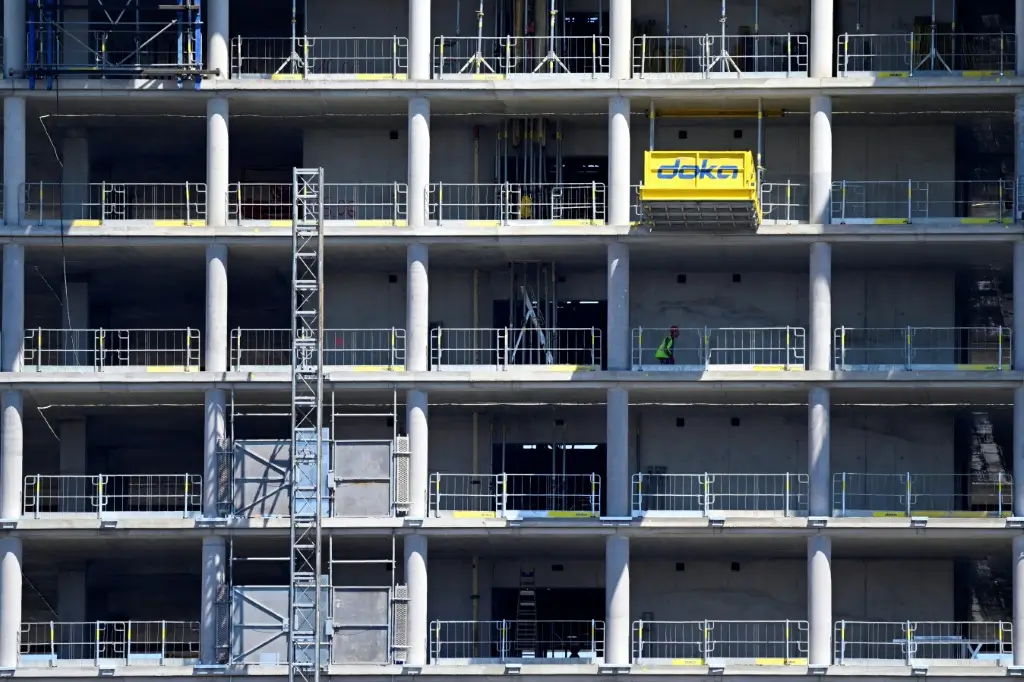
On Thursday, the Bundestag (German Parliament) debated the federal government's plans for accelerated housing construction for the first time. The planned law on the so-called "Bauturbo" (construction boost) represents a first important step toward "overcoming the housing shortage in Germany," explained Michael Kießling, the CSU's policy spokesperson for construction and housing in the Bundestag. The Greens, on the other hand, accused the federal government of promoting expensive new construction instead of affordable housing.
The cabinet passed the draft bill to accelerate housing construction and secure housing in June. Federal Construction Minister Verena Hubertz (SPD) promised, when presenting her government program in May, to set an "ambitious pace" for housing construction and to launch a "housing construction turbo." On Thursday, the Bundestag debated the proposal in its first reading.
Kassem Taher Saleh, the Green Party's spokesman on construction and housing policy, criticized the proposal. With its planned law, the federal government wanted to "promote new construction that is expensive, seals off land, and restricts local participation, this doesn't solve problems, but creates new ones," he explained.
The draft law contains nothing about social or non-profit housing, Taher Saleh continued. "One would have expected more commitment to affordable housing, especially from the SPD." The Green Party politician also criticized the fact that local government participation would be restricted and building on meadows and open spaces would be made easier. Yet "these very areas are crucial for climate protection and quality of life."
According to the draft law, cities and municipalities will be able to deviate from the currently applicable planning regulations in the future – for example, they can forgo a development plan altogether. According to the Federal Ministry of Construction, the prerequisite is that the deviation is compatible with the public interest and that either a residential building is being constructed or a building is being expanded, modified, or renovated to accommodate new living space. The regulations therefore also apply to social and cultural institutions such as daycare centers or theaters.
The regulation is to be limited to December 31, 2030. Furthermore, deviations from zoning plans will only be possible if, "after a preliminary assessment," they do not have any additional "significant" environmental impacts. Neighborhood interests must be "taken into account."
The proposed law provides for further regulations to quickly create more housing. For example, municipalities would be allowed to deviate from emission limits, for example, to build apartments closer to commercial areas than before.
The German Chamber of Industry and Commerce (DIHK) warned of risks for industry and commerce before the Bundestag deliberations. Opening industrial and commercial areas for residential construction would hardly ease the housing markets, but "could lead to the displacement of companies and hamper investment," explained DIHK Executive Director Helena Melnikov.
Axel Gedaschko, President of the German Housing Association (GdW), welcomed the federal government's initiative. However, it is crucial that the construction boost is also ignited "in reality." "Municipal building authorities must become enabling authorities – with clear procedures, fixed deadlines, and visible support from politicians and administrative leadership," Gedaschko demanded.
Jan-Marco Luczak, the CDU/CSU parliamentary group's spokesman on construction policy, also stated that it is now "a matter for the municipalities to get on board." "They have the power to apply the construction turbo. Their municipal planning sovereignty remains unaffected. The mindset must be: priority for housing," Luczak continued.